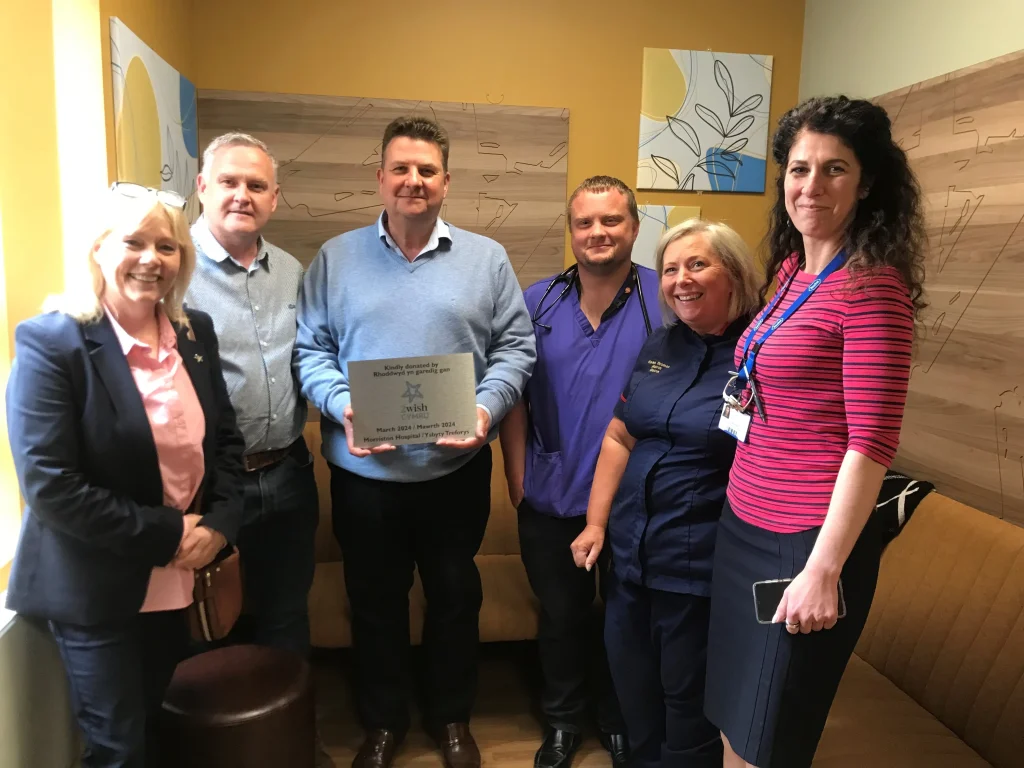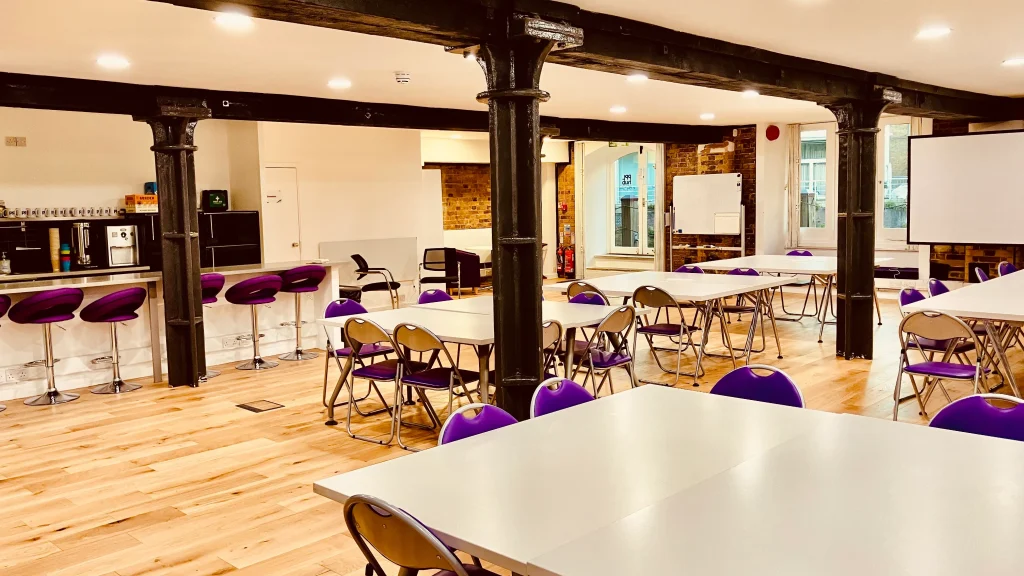Oliver Cookson Foundation
- Founded in 2022
- Currently rolling out pilot programmes of Cookson First Aid in Greater Manchester
- Collaborating with local community partners
- Tailoring delivery for accessibility needs
- cooksonfirstaid.org
I recently spoke to Emily Harrison, CEO of the Oliver Cookson Foundation, a new fully funded charity seeking to roll out a grassroots, accessible First Aid course to communities in Greater Manchester. Emily has utilised her previous experience and connections from working in Manchester’s charity sector to get Cookson First Aid, their flagship project underway. This project is an excellent example of embedding accessibility into the initiative and delivering that, at a grassroots level, through partnerships, with other charities and organisations.
Tell us about this new charity that you’re setting up.
“It’s a privately funded foundation, founded by Oliver Cookson – an entrepreneur from Greater Manchester, who wanted to set up a foundation in his name, to support the causes that he is passionate about.”
The Foundation’s flagship programme, Cookson First Aid, is a “Free First Aid For All” concept.
“We will deliver First Aid courses in communities for free and ensure that as many people as possible get access to CPR training, know how to use a defibrillator and learn other life-saving skills.”
Emily explained how First Aid courses are typically funded by an employer and can normally take a whole day to three full days. Cookson First Aid aims at being accessible, free and honed down to key points (life-saving skills) so that it can be delivered in 60 – 90-minute-long sessions, depending on the size of the group.
Part of getting the message out there will be an educational piece to encourage people to understand the importance of knowing these skills and where they can find them.
Through research conducted, Emily found that the most effective way to deliver First Aid training is in person, so they have opted for a grassroots programme that will involve partnering with local community-based organisations and tailoring the course to different audiences.
To truly make it accessible to people’s different needs, Emily described how they planned to work with support services for people with accessibility needs, such as BSL users or people with English as a second language.
What are some of the challenges?
Some of the challenges will be recruiting the right people as part of the small team at The Oliver Cookson Foundation.
Our new Head of First Aid will help develop the courses for the pilot, in partnership with other organisations, and then help recruit more staff and trainers ready for the wider roll-out in spring 2023.
Do you have local charity partners lined up, or is that something yet to do?
“This is what’s been happening in the background for the last 6 months. My previous role was for Manchester City Council, where I worked across the whole city of Manchester partnering with organisations and overseeing Commercial for Parks, Leisure, Events and Youth, which involved delivering loads of activities and outreach across the city.
I think the key to getting people involved is for us to go where communities are already meeting, as I think the most significant barriers are usually cost and travel/access to getting to where they need to be. We want to deliver the course in parks, libraries and local authority leisure centres. It’s fantastic that I’ve got those connections with the City Council, but I’ve been reaching out across Greater Manchester to try and build new partnerships with people and spread the word about what we are doing.”
What does the long-term vision of the Foundation look like?
“We are still working on the strategy itself, but it will focus around Oliver’s vision for the Foundation; supporting causes that he’s passionate about, such as free first aid, for all.
Oliver has a family history of heart disease and knows that many other families are also impacted by health conditions that can put them at higher risk of cardiac arrest. So having those basic skills of knowing what to do and having the confidence to use them is essential.
We want to make sure that people know what to do and are confident and comfortable in delivering CPR because it can be a high-energy, potentially dangerous and quite a frightening experience when needed.
Accessibility is the element that Cookson is advocating for and a vital part of the campaign. For example, Emily is partnering with Bolton Deaf Society and the Greater Manchester Deaf Alliance to ensure all the training materials are accessible to people who use British Sign Language or are hard of hearing.
“When researching our programme, we noticed a real lack of options for inclusive training opportunities and that was something we could make a difference in. Involving partners in our course development from the beginning is so important to us, we want to offer our training to everyone and work with the organisations who can help us to get it right.”
There are plans for course extensions which build on the essential life-saving skills to identify signs of cardiac arrest and look at mental health.
Emily also recognised that a lot of campaigning work could run alongside the course. First Aid is now on the national curriculum, and the government has recently committed to having defibrillators in all UK state schools. However, if you aren’t in education or work, there aren’t many places where you can go in person to learn those skills for free.
The Foundation is already considering other causes and collaborations to work on and fund, but the plan for the next 12 months is firmly on the First Aid issue.
“We have exciting plans for the future, but our focus right now is to roll out Cookson First Aid across Greater Manchester and then nationally in 2023.”

Do you have a goal for how many sessions you want to deliver or how many people you would like to attend them?
“It would be great to say we can deliver ten thousand hours of training a year across the UK, but we want to develop a model we know works before we start to set huge goals and grow.
We want to be able to deliver our courses in 60 minutes, and our pilot programme will test that to make sure it’s effective.
Getting as many people to learn the basic life-saving skills as possible is our key aim, as when you need it, you really do need it.”
Will you be using digital means too?
“Absolutely.”
Developing in-person training is the priority, but Emily recognises that digital means will be necessary for education and advocacy to create awareness and this will play a part in making Cookson First Aid accessible to more people.
“We’ve been working with a brand development agency in Manchester to pull together our website, look and feel, and some of our infographics. As we roll out our courses, we’ll develop video and online digital content because not everyone can access an in-person course, even if they want to.”
“We’d like to develop an app where people can have speedy access to know what to do. I know a couple of other organisations have something similar. We want to work in partnership with them because that will be much more effective in getting the message across quickly and in an accessible way.”
In terms of communicating your mission to people. Is it for the local partners to invite people in, or is that something that you will help them with?
“It’s going to be a mix of both. We will use social media to create brand awareness as we think the vast majority of people who will access our courses will probably find out online or by word-of-mouth.
Because it’s initially a grassroots initiative, we’re going to go out and do some outreach with groups, engage with them, and attend some community events to help people understand the need to learn CPR.
The ideal situation is that we work with an already established community group, go to their venue where they already meet and deliver the course there, and then that snowballs so we can connect with other groups in a similar way.
When we take it national, we will use our tested model to engage with communities across the country, but still at a grassroots level.
We are also aiming to grow the programme sustainably; we want to enable people to become trainers themselves and return to their community or business to deliver the training there.”
For more information about this project, visit cooksonfirstaid.org





